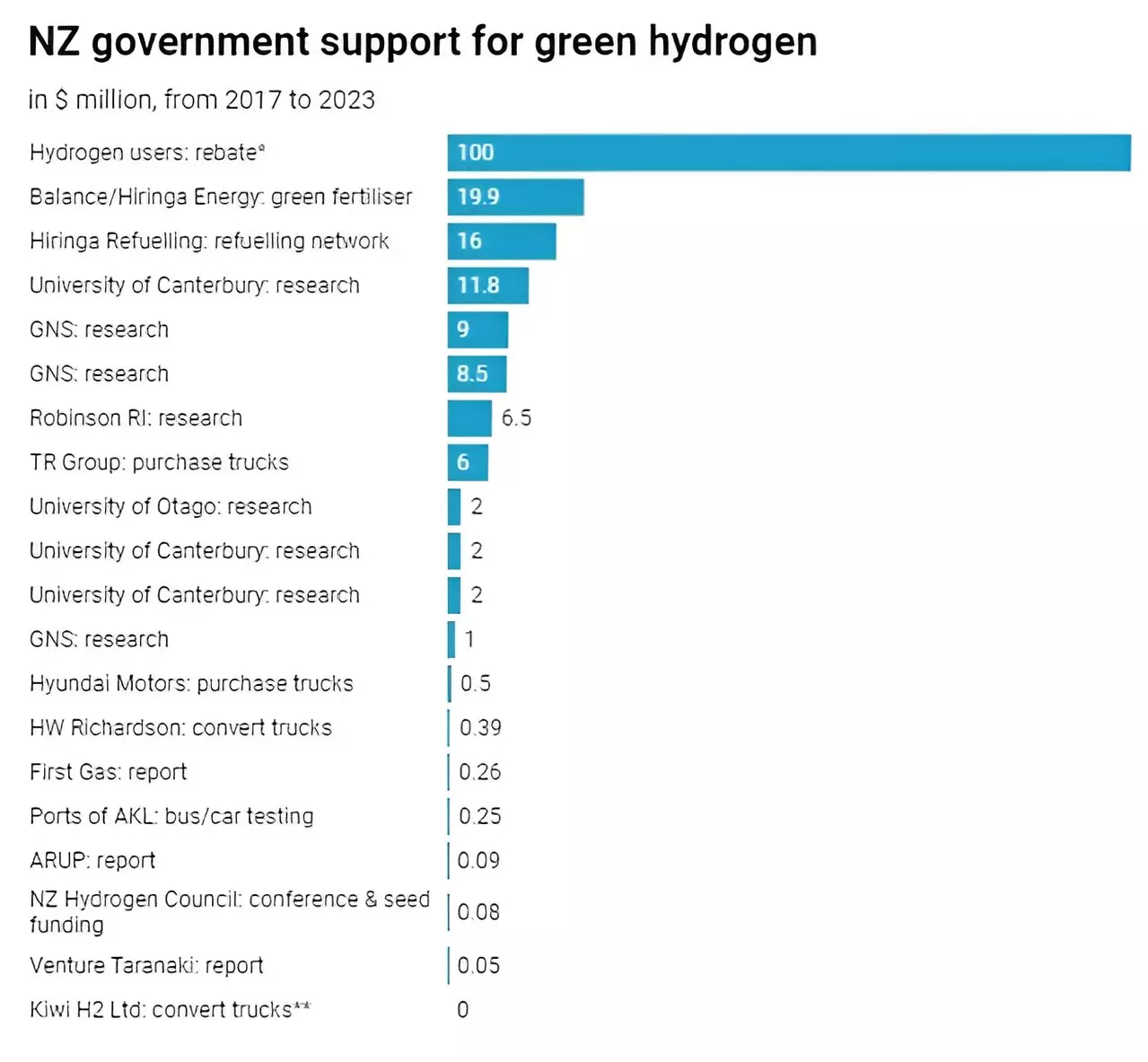The recent setback in the deal to bring hydrogen-powered trucks to New Zealand has cast a shadow over the future of green hydrogen technology in the country. With the removal of a substantial government rebate scheme for green hydrogen users in the 2024 budget, the transition to this much-hyped energy source is becoming increasingly doubtful. The government’s investment in heavy freight hydrogen trucks from the US company Hyzon fell through, leaving many questioning the feasibility and reliability of green hydrogen as a sustainable energy solution.
Despite the rising global interest in green hydrogen as a potential solution for future transport and energy systems, critical voices in New Zealand have been noticeably absent from the conversation. The government’s significant financial support for green hydrogen initiatives, totaling $186.3 million from 2017 to 2023, has fueled the optimism surrounding this technology. However, the lack of critical analysis and skepticism in the debate has raised concerns about the one-sided narrative dominating the conversation.
While proponents of green hydrogen argue for its necessity in decarbonizing sectors like heavy road transport, shipping, and fertilizer production, there are differing opinions on whether hydrogen is the best choice for these applications. Critical experts, such as University of Cambridge’s David Cebon and energy strategist Michael Barnard, have highlighted the shortcomings and inefficiencies of green hydrogen compared to alternatives like battery electric vehicles. The emergence of innovative technologies, such as fast-charging electric trucks, further challenges the viability of hydrogen fuel cells in road transport.
It is essential to adopt a more nuanced perspective on green hydrogen that acknowledges its limitations as an energy carrier rather than an energy resource. The need for critical analysis and informed decision-making in government policy regarding green hydrogen is crucial to ensure that resources are allocated effectively. An independent and unbiased evaluation of the potential and challenges of green hydrogen is necessary to guide New Zealand’s energy strategy towards decarbonization and sustainability goals.
The focus should shift towards applications of green hydrogen with the highest potential for delivering on New Zealand’s decarbonization objectives. Industries transitioning from fossil fuels to green hydrogen to produce essential materials like steel, ammonia, fertilizer, and methanol could be a key avenue for sustainable growth. By reevaluating the green hydrogen movement with a critical eye and focusing resources on practical and impactful applications, New Zealand can ensure a more sustainable and effective energy transition in the future.


Leave a Reply